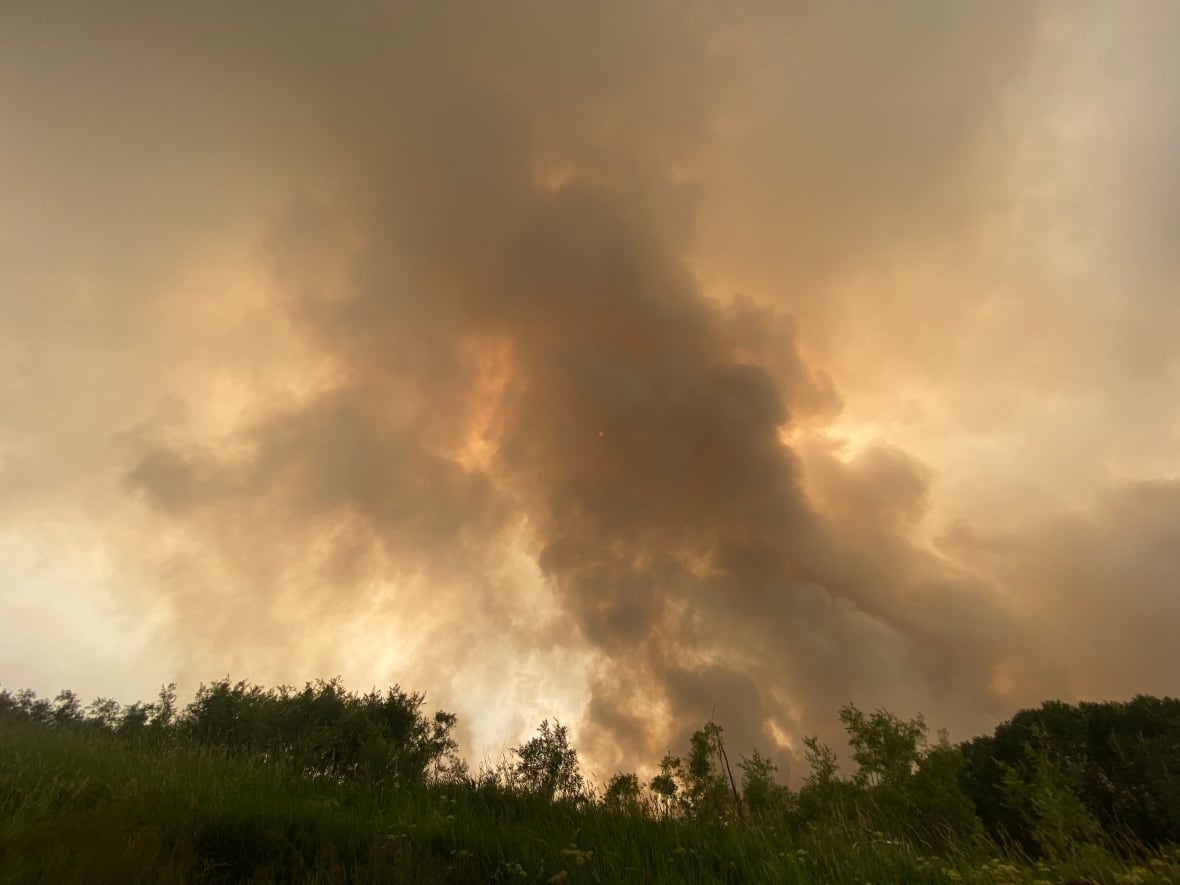What's all this wildfire smoke doing to your health? Here's what experts have to say
During wildifire season, more reported ER visits related to asthma, other health impacts
People who breathe air polluted with large amounts of wildfire smoke visit hospital emergency rooms more often for respiratory symptoms, according to a Canadian emergency room physician and chair of the Global Climate and Health Alliance.
Rates of heart attack and cardiac arrest also increase after a couple of days of exposure, Dr. Courtney Howard said.
"So don't just attribute that feeling of heaviness in your chest to asthma," said Howard, who works in Yellowknife and is president of the Northwest Territories Medical Association.
"If you have other risk factors for cardiovascular disease especially, go see your friendly local emergency department."
Windsor, Ont., has spent a total of 14 days under special air quality statements from Environment and Climate Change Canada since wildfire season began on April 1.

The most recent one ended Tuesday after a long weekend during which the air quality health index (AQHI) jumped into the high-risk zone.
Even in healthy people, exposure to smoke can trigger headaches, runny noses and scratchy throats, Howard added.
More hospital admissions
Smoke is blowing in from wildfires in Saskatchewan, Manitoba and northwestern Ontario, said Crawford Luke, a meteorologist with the weather office.
Howard co-authored a 2018 study on wildfires in the Northwest Territories that was summarized in a 2021 report from the Global Climate and Health Alliance. It found that asthma cases doubled during the fires, and prescription dispensations of a drug used to treat asthma and chronic obstructive pulmonary disease (COPD) symptoms increased by 50 per cent in community pharmacies in areas impacted by the fires, compared to surrounding areas.

Ontario also saw an increase in asthma-related emergency room visits in 2023, when wildfire smoke blanketed much of the province, said Dr. Mehdi Aloosh, medical officer of health for Windsor-Essex.
Much less is known about the long-term impact of exposure to wildfire smoke, Aloosh said. But Howard said a pair of studies, including a Canadian one, indicated a correlation with increased rates of brain and lung cancers.
"What I thought was interesting about that was it was actually a relatively low exposure compared to what a lot of people are now facing," Howard said.
But she added: "With any study like that, we would want to see a lot more studies showing us the same effect before we really consider that a concrete conclusion."
In the medium term, she said, there is also evidence that air pollution such as wildfire smoke might be associated with higher rates of pre-term birth, so pregnant women should wear N95 respirators outdoors at times of poor air quality, keep their windows and doors closed, and invest in good-quality air filtration.
On the mental health front, the relative darkness caused by wildfire smoke can create its own problems, Howard said, leading to seasonal affective disorder-like symptoms in some people and triggering what is sometimes described as climate grief.

Battling climate change is key to addressing the problems caused by wildfire smoke, Aloosh said.
In the meantime, governments and individuals need to invest heavily in indoor air filtration, Howard said.
Windsor can expect more smoky air on Wednesday as a ridge of high pressure continues to keep pollution trapped near the Earth's surface, Luke said.
But southerly winds from the Ohio valley should move in to clear the air for the subsequent week to 10 days.
Aloosh said that, for now, people should continue to monitor the air quality health index and adjust their activity levels accordingly.
They should also listen to their bodies and reduce their exposure to smoke if they are experiencing symptoms such as burning eyes, a sore throat or coughing.


